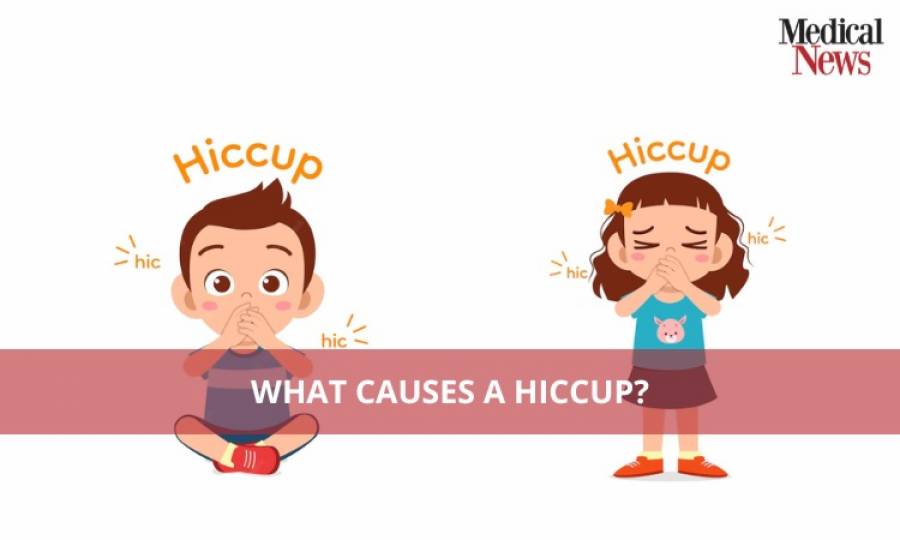What Causes a Hiccup?

What causes a hiccup
Hiccups are defined as repetitive, uncontrollable contractions of the diaphragm, the muscle structure that lies below your lungs. The medical term for hiccups is Singultus. The diaphragm marks the boundary between your chest and abdomen and regulates breathing. On the contraction of the diaphragm, the lungs take in oxygen. Similarly, relaxation releases carbon dioxide. When it contracts out of rhythm, hiccups happen. The diaphragm spasm results in the vocal cords closing down suddenly. There is no you can anticipate a hiccup. While some hiccups resolve within a few minutes, others may persist for a day or two. If the hiccups last more than two months, they are called intractable hiccups.
Causes of hiccups:
They can occur for many reasons, from physical to emotional. Some of them are:
1. Eating too much or too quickly
2. Eating spicy food.
3. Experiencing nervous or excited feelings.
4. Drinking carbonated beverages or too much alcohol
5. Stress can be a factor.
6. A sudden temperature change.
7. Swallowing air while sucking on candy or chewing gum.
8. Are anaesthetized for a procedure.
9. Alcohol or tobacco use.
Chronic hiccups:
When the hiccups last for months and keep coming back, they require treatment. It’s primarily because of the damage to the nerves connected to the diaphragm. Any slight stimulus to these nerves can result in a hiccup. The triggers can be central nervous system disorders like meningitis, metabolic diseases like diabetes, or drugs like steroids. Long-term hiccups can interfere with a person’s sleep, eating, breathing and working. It can cause stress and exhaustion. A doctor needs to be contacted if there are other added signs like vomiting, fever, gastric problems or cough.
Treatment:
People use many traditional tactics to make hiccups go away, like making a sudden movement or scaring them, but these have no scientific justifications. Potential home remedies that may or may not stop hiccups are:
- Holding breathing or breathing into a paper bag.
- Swallow sugar or bite on a lemon.
- Drinking a glass of cold water slowly.
- Trying the Valsalva maneuver by shutting your mouth and nose and exhaling forcefully.
- Bring your knees to your chest and maintain this position.
For long-term hiccups, prescribed medications like Gabapentin, Baclofen, and Chlorpromazine can be taken, but these are not FDA-approved medications for hiccups.
Prevention can be undertaken by eating slowly and avoiding triggers to reduce susceptibility.
Trending
Popular
Sindh pledges vigorous action to prevent poliovirus transmission
-
PMA stresses health equity on World ...
04:08 PM, 9 Apr, 2024 -
Dow University’s new rabies vaccine ...
12:18 PM, 28 Mar, 2024 -
IRD role lauded in advancing ...
02:53 PM, 12 Mar, 2024 -
Over one billion people worldwide ...
09:48 AM, 5 Mar, 2024




